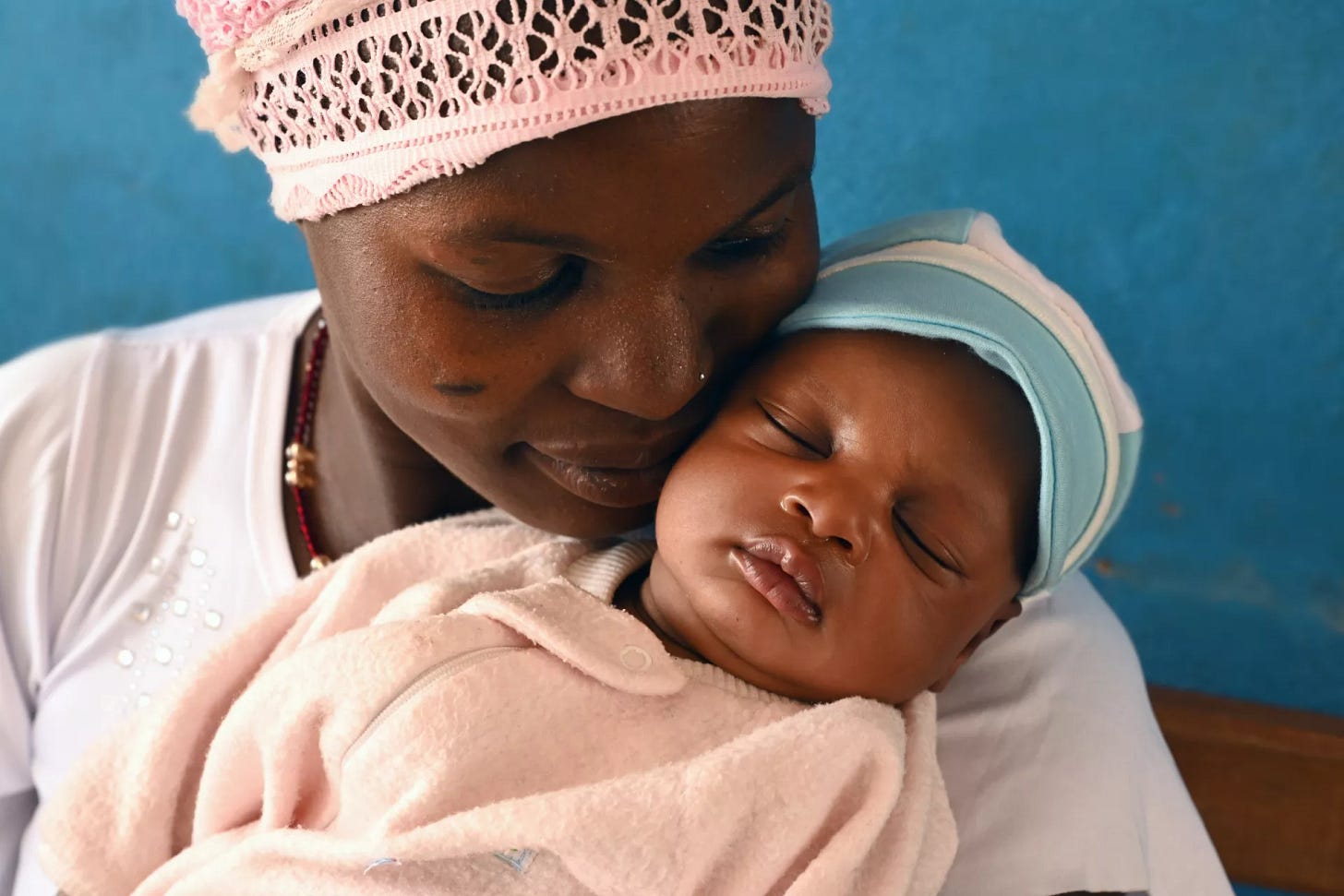Trump is Coming for UNICEF
For decades, UNICEF has been a symbol of international cooperation. Now, it's the target of an unprecedented effort by the U.S. government to undermine it.
In 1961, The New Yorker published a profile of Maurice Pate, an American who served as the founding executive director of UNICEF. The piece tells the fascinating history of UNICEF, which grew out of post-war efforts to feed and shelter hundreds of thousands of children whose lives were upended by the Second World War, and soon evolved to a global organization dedicated to improving the health and welfare of children worldwide.
The title of the piece, The Heart of Unicef, was derived from the adage that “UNICEF is the heart of the UN.” It’s a glowing profile that tells the story of how, by mid-century, Maurice Pate and UNICEF were able to channel international solidarity to improve the lives of the world’s most vulnerable children. For example, it recounts how Pate devised a partnership with Mexico to drive down malaria, which was killing 20,000 Mexican children annually. Within four years, malaria was all but eradicated in the country, putting Mexico’s malaria levels on par with the United States.
It’s these kinds of efforts — and support from mid-century megastars like Katharine Hepburn and Danny Kaye — that cemented UNICEF’s reputation as the heart of the UN. Despite the Cold War, conflicts, and upheavals, the world could still come together in support of children. To this day, UNICEF remains the most popular and beloved UN agency.
But now, the Trump administration is taking direct aim at UNICEF, positioning one of the world’s most trusted child welfare organizations as its latest target—an attack that carries potentially devastating consequences for millions of children worldwide.
Last week, UNICEF (along with a few other UN agencies) received a bizarre questionnaire from the United States that demanded “yes” or “no” answers to some 23 questions. These questions are absurd, and clearly crafted in such a way as to force answers that would justify an American withdrawal from UNICEF as its longtime financial and political backer.
For example, one question asks the agency to affirm that it “does not work with entities associated with communist, socialist, or totalitarian parties, or any party that espouses anti-American beliefs.”
Of course UNICEF does — because it’s an agency of the United Nations! To be sure, the vast majority of UN member states don’t fall into any of these categories. But the UN is a member-based institution composed of 193 countries. Some of these countries are run by communist parties, like China and Cuba. A couple can credibly be called totalitarian, like North Korea and Eritrea. Some are run by avowedly socialist parties, like certain countries in Northern Europe, and a few are expressly anti-American, like Iran.
The UN is not a club of like-minded governments — that’s what groups like NATO or the Organization of Islamic Cooperation are for. Rather, the whole point of the UN is to serve as the one entity that can bring every country together to find opportunities for cooperation transcending wide differences. This is what UNICEF does every day: provide a platform where countries can find ways to support the world’s most vulnerable children, despite vast political and cultural divides.
Within that framework, the goal of American policy from 1945 until circa March 2025 has been to blunt the influence of American rivals in the multilateral system through deep and routine engagement with the UN. The United States has leveraged the UN to advance its core national interests and values. The priorities of the United States have historically held more sway at the UN than those of its rivals precisely because the U.S. — as host country and dominant global power — has leaned into the United Nations as a tool to advance American national security interests and promote American values. These values have historically included supporting poor children worldwide — apparently, until now.
The DEI Smokescreen
Another set of questions asked by the Trump administration of UNICEF is around diversity and they are equally absurd. UNICEF is being asked to give a “yes” or “no” answer to the question: “Can you confirm there is no DEI project or there are no DEI elements in this project?”




